-
 +14 +1
+14 +1Famous Yellowstone park wolf killed by trophy hunter
One of the most popular wolves in Yellowstone National Park was killed by a trophy hunter after wandering just outside the park last weekend. By Aris Folley.
-
 +15 +1
+15 +1Elephants are evolving to lose their tusks
The oldest elephants wandering Mozambique’s Gorongosa National Park bear the indelible markings of the civil war that gripped the country for 15 years: Many are tuskless. They’re the lone survivors of a conflict that killed about 90 percent of these beleaguered animals, slaughtered for ivory to finance weapons and for meat to feed the fighters.
-
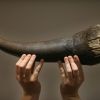 +14 +1
+14 +1Fury after China reverses 25-year-old tiger bone and rhino horn ban
The World Wide Fund for Nature (WWF) announced their "profound concern" over the changes in the law, which would allow bone and horn products to be traded
-
 +10 +1
+10 +1Nearly a tonne of pangolin scales, ivory seized in Vietnam, which has banned the trading of both
Vietnam has seized around a tonne of pangolin scales and ivory hidden inside airline cargo packages, state media reported, as the country struggles to rein in wildlife smuggling across its borders. Both the ivory and pangolin trade have been banned in Vietnam but weak law enforcement in the communist state has allowed a black market to flourish and feed into a global multibillion-dollar industry in animal parts and exotic pets.
-
 +2 +1
+2 +1At last, some good news for the African elephant
WITH massive tusks that touched the ground, Satao towered over the rest of his herd. One of the last great “tuskers”, the beast estimated to be around 50 years old was heralded as Kenya’s biggest, oldest, and arguably most iconic elephant. Tourists from around the world would flock to see Satao in his prime. Yet his celebrity status, and the added protection it afforded him, was not enough to save Kenya’s most beloved bull elephant.
-
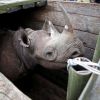 +23 +1
+23 +1Anti-poaching unit nabs 365 poachers in six months
Durban - A specialised unit, set up to fight poaching have made great strides in their bid to stamp out rhino poaching. Over the last six months, a total of 365 rhino poachers have been convicted and an additional 15 men aged between 33 and 50, have been arrested. National police spokesperson, Brigadier Vish Naidoo said the 15 were nabbed following sting operations in Mpumalanga. He said police recovered four unlicensed firearms and ammunition.
-
 +11 +1
+11 +13 alleged rhino poachers eaten by lions in South Africa
A ranger discovered human remains close to a pride of lions while taking guests on a safari drive at the reserve on Tuesday. “We suspect two were killed, possibly three,” owner Nick Fox told NBC News. An ax, shoes, and gloves were found later when police and an anti-poaching unit arrived. The lions had reportedly been heard making noise in the early morning hours on Monday.
-
 +11 +1
+11 +1Poachers Will Soon Face Death Penalty in Kenya, Spurring Debate
The measure has been met with mixed responses. Life sentences and steep fines were not enough to deter poachers in Kenya. Now, those caught killing protected animals will be sentenced to death, according to the Independent. The measure hasn’t been legalized yet, but it will be “fast-tracked” for approval, the Independent reports. It’s the most extreme penalty in the world for poaching, and it represents a tipping point in the global fight against the decline of wildlife.
-
 +10 +1
+10 +1Virunga park rangers in DRC killed in ambush
At least five park rangers have been killed by armed men in the famed wildlife park in the Democratic Republic of Congo. Virunga is home to critically endangered mountain gorillas, which have been targeted by poachers.
-
 +31 +1
+31 +1Inside the high-tech plot to save the northern white rhino from extinction
‘The northern white rhino is emblematic of our times, about the impact of humans on wildlife.’
-
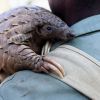 +2 +1
+2 +1Only 8 per cent of Britons can identify a pangolin - are you one of them?
Around 300 pangolins are poached every day, making these unusual animals the most illegally trafficked mammals in the world. Also known as “scaly anteaters”, pangolins are found throughout Asia and Africa, but their numbers are dwindling as a result of poaching for international trade.
-
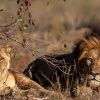 +5 +1
+5 +1Poacher EATEN by lions he was hunting in South Africa
A big cat poacher has been killed and eaten by the pride of lions he was hunting at a private game reserve in South Africa. The hunter was heard screaming for help as he was attacked at the Ingwelala Private Nature Reserve in Hoedspruit outside Phalaborwa. But the lions quickly killed their victim and devoured most of his body before being chased off, leaving his head untouched.
-
 +40 +1
+40 +1Lions Eat Suspected Big Cat Poacher
The lions in the Kruger National Park in South Africa left the head and only a few remains.
-
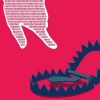 +21 +1
+21 +1This AI Hunts Poachers
Every year, poachers kill about 27,000 African elephants—an astounding 8 percent of the population. If current trends continue, these magnificent animals could be gone within a decade. The solution, of course, is to stop poachers before they strike, but how to do that has long confounded authorities. In protected areas like wildlife preserves, elephants and other endangered animals may roam far and wide, while rangers can patrol only a small area at any time. “It’s a two-part problem,” explains Milind Tambe, a computer scientist at the University of Southern California, in Los Angeles.
-
 +23 +1
+23 +1China Shuts Down Its Legal Ivory Trade
As of December 31, China’s legal, government-sanctioned ivory trade will come to a close. All of the country’s licensed ivory carving factories and retailers will be shuttered in accordance with a landmark 2015 announcement from Chinese President Xi Jinping and then U.S. President Barack Obama. China and the U.S. both agreed to “near-complete” ivory bans, which prohibit the buying and selling of all but a limited number of antiques and a few other items. The U.S.’s ivory ban went into effect in June 2016. China’s goes into effect December 31, 2017.
-
 +16 +1
+16 +1Synthetic rhino horns are being created to flood markets and eradicate poaching
Since 2007, instances of rhino poaching in South Africa have increased by 9,000 percent, according to the World Wildlife Fund (WWF). The non-profit conservation group Save the Rhino estimates that 1,054 of the animals were illegally killed in 2016. To battle this horrifying trend, biotech startup Pembient hopes to undermine black market sales by creating synthetic rhino horns that are practically indistinguishable from real horns, down to the molecular level.
-
 +9 +1
+9 +1A biotech startup is trying to end poaching by flooding the market with fake rhino horns
Rhinos are among the hardest hit by the illegal wildlife trade. The horns fetch high prices on the black market — up to $60,000 per pound, far more than the price of gold. They're used to make elaborate carvings across East Asia and are also believed to have curative properties in some traditional Eastern medicine practices. Pembient, a two-year-old Seattle-based biotech startup, is trying to solve the rhino poaching crisis with a 3D printer and some clever economics.
-
 +1 +1
+1 +1Since Mali Formed A Brigade To Protect Its Elephants 9 Months Ago, Not A Single Elephant Has Been Lost To Poachers
In January 2016, Susan Canney, director of the Mali Elephant Project, predicted all of Mali's elephants would be killed within three years if poaching continued unabated. "They are probably among the most extremely endangered of Africa's elephants," said Iain Douglas-Hamilton, the founder of Save the Elephants, a wildlife advocacy group. "I am extremely worried."
-
 +16 +1
+16 +1Ivory trade to be banned in UK
The sale and export of almost all ivory items would be banned in the UK under plans set out by the government. Environment Secretary Michael Gove has announced a consultation to end the trade in ivory of all ages - previous attempts at a ban would have excluded antique ivory produced before 1947.
-
 +24 +1
+24 +1Three more rangers killed in a deadly month around the world for wildlife defenders
Three rangers have been killed in separate countries in a deadly month for wildlife defenders. A ranger at Serra da Capivara national park, in Brazil’s north-eastern Piaui region, was killed by hunters on 18 August. Edilson Aparecido dos Santos and two other colleagues were patrolling the park when they were ambushed by a group of four armed men who are believed to have been hunting in the park illegally. Dos Santos was killed in the shootout that followed, while the other two rangers were injured.
Submit a link
Start a discussion




















